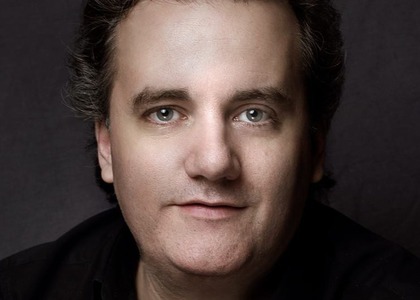> [Archived] Interviews

Interview with the pianist Josu de Solaun
The winner of the first place at the piano section at the 2014 edition of the International Contest "George Enescu" will perform the Concerto for Piano and Orchestra No.3 by Ludwig van Beethoven on the stage of Sala Radio.
How do you usually interact with the audience? Do things change in a country such as Romania?
I feel that I have a responsibility for the audience, to offer them the freedom to leave their daily routine. I wish I could persuade them - to be a messenger for what the composer wrote for them. For me, music without a recipient doesn't exist, thus they are almost the most important factor. In Romania I have a special relationship with the audience. First of all, I love the history and the culture of the country and I learn, bit by bit, the Romanian language. Secondly, some of my best friends are Romanians. Ever since I've won the "George Enescu" Contest I felt welcomed. In that way I am always honoured to perform in Romania.
How did you choose the piece for the concert at Sala Radio?
The Concerto for Piano and Orchestra No.3 by Ludwig van Beethoven was the first concerto that I performed with an orchestra, so it has a special meaning for me. What I appreciate in this piece is the fact that Beethoven has a way of exhibiting a wide variety of emotions. For example, the beginning is dramatic, with a lot of gravity, and then it changes slowly, slowly and lyrically in the second part of the concerto.
You are beyond doubt a universal artist. What is your opinion about the Romanian music?
I have dedicated a big part of my life to studying George Enescu's collected works for piano. Now I am studying the music of four Romanian composers - Mihail Jora, Constantin Silvestri, Paul Constantinescu and Dinu Lipatti. Their work forms a big part of my repertory for recitals and recordings, so I have an intense relationship with Romanian music and I feel I have a duty to make this incredible legacy known all over the world.
Translated by Filipov Mădălina, MTTLC, 2nd year














